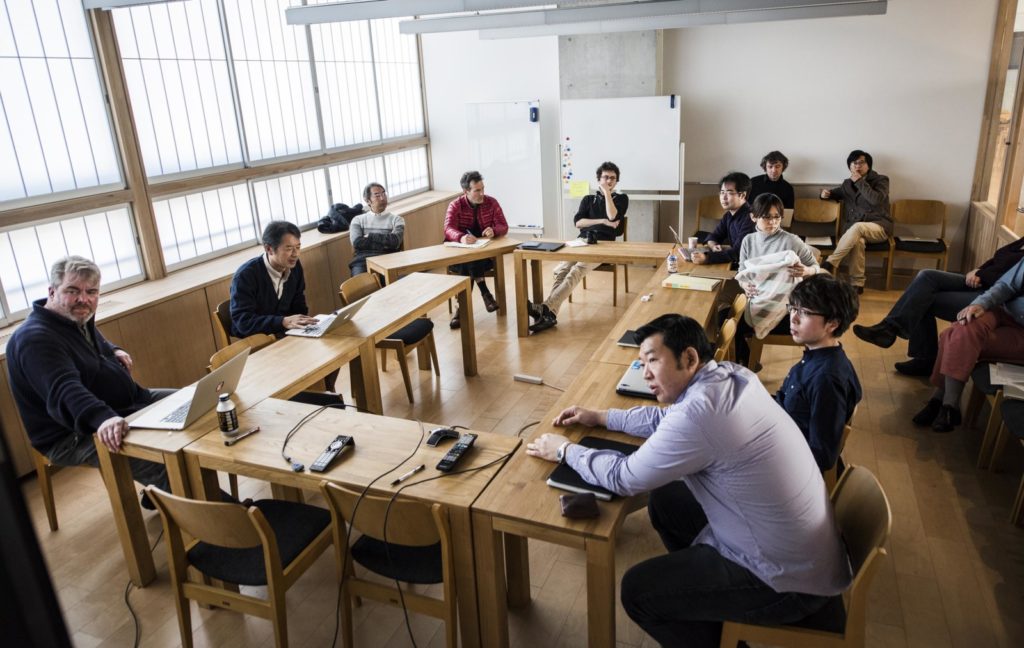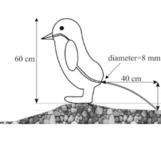
It has become inevitable for scientists to move abroad for their jobs. Moving to and living in a new country can be a very exciting, yet also tough experience. In today’s blog post, Irene Bonati (PhD Student at the Earth-Life Science Institute, Tokyo) discusses the challenges and perks that come with the nomad lifestyle of many academics.

Irene Bonati is a PhD student at the Earth-Life Science Institute (ELSI), Tokyo, Japan.
Research provides a kind of freedom that almost no other job can give. We get to choose the topic we want to investigate, how to tackle it, who we want to collaborate with, and we get to travel all over the world. Be it to conferences, symposia, or workshops, scientists travel a lot. While usual research trips last only for a few days or weeks, conducting a career in academia often comes with moving for longer periods of time to different countries and institutions all around the globe. In fact, it is not uncommon for scientists to have lived in three to four different countries under short-term (one to two years) contracts by the time they get a permanent position. The reason behind this lies in the fact that working in different research labs, on different projects, and with different people greatly expands one’s research skills and network, which is of great benefit for a career in academia. Furthermore, as researchers advance in their career path, it gets increasingly hard to find open positions both close to home and matching their research interests. The choice on where to go to next is thus mostly out of one’s control. Anyway, at some point in their career, most researchers find themselves with packed luggage ready to relocate to a new country.
Living abroad is exciting, but adapting to a different environment is often more easily said than done, and can profoundly impact one’s work, lifestyle, and personality. This is because while moving to a new place comes with many interesting experiences, a number of the changes researchers face do not have anything to do with work itself. As someone who has been away from home during all of my studies, both relatively nearby and literally at the other end of the world, in Japan, I have come across a huge number of “adventures”, be it getting through crazy bureaucratic procedures, or just looking for milk at the supermarket. So far, it has been an amazing experience, and although there is no real recipe for living abroad, I want to focus on some aspects that everyone will stumble upon when moving to a different country.

Packed shelves in a Japanese supermarket – Help, I am just looking for toothpaste and some regular milk!
It’s a matter of culture
The first inevitable consequence of living abroad is getting in touch with a new culture. Culture is like an iceberg, as it encompasses aspects spanning from simple and visible daily life gestures (e.g., language, cooking, arts – the tip of the iceberg), down to values that are deeply rooted inside a country’s identity and history (e.g., social patterns, way of working, way of learning – the rest of the iceberg). Learning about a different culture is a never-ending process: it expands our horizons, and exposes us to new ways of seeing and perceiving things around us. Through my experiences abroad, I have adopted some specific features of a given culture and incorporated them into my own way of living. On the other hand, some cultural aspects, especially the more hidden ones, can remain difficult to understand, and can lead to real “shocks” and misunderstandings.
Fully understanding a different culture is perhaps impossible. While there is not always a rational explanation to cultural discrepancies, I have found it extremely helpful to talk to colleagues or friends who have lived in the host country for longer, or to local people who previously lived overseas. This has helped me gain more insight into the reasons underlying profound cultural differences, and has made me appreciate them even more.
The essence of communication
Another important aspect is related to differences in communication, which is essential for daily activities, such as discussing science, asking for advice, or simply chatting on the street or at coffee break. Language is key for talking with other people, and in most cases we find ourselves not mastering or not knowing the language of the country we move in at all. While
this can be seen as a barrier to getting full access to the country itself, it is actually an opportunity for getting to know the country better. Realizing how different languages work is deeply fascinating, and it can teach us a lot about the cultural background of a given place. The way of interacting with other people goes, however, way beyond language, and highly depends on the used words, the tone and volume of the voice, and body language. Sometimes even the more subtle differences in the way of communicating can lead to deep misunderstandings and modify people’s perception of us. To avoid such situations it is important not to impose one’s way of communicating and to adapt it by adhering to the etiquette of the host country. I found it always interesting to observe which gestures and formulations local people use when interacting with each other, and try to adopt these when I talk to them.

Scientists from different cultural and disciplinary backgrounds discussing during a group meeting at the Earth-Life Science Institute (ELSI) in Tokyo (Japan). Credits: ELSI
The lonesome researcher
In most cases, researchers arrive in a new country by themselves. As a result, loneliness can automatically become a common feeling. Finding a new group of friends might not be an easy task, as the way relationships are defined and created can be completely different than back home. The busy research schedule does not help to this purpose, and finding the time and energy to meet people can be hard. Hanging out with work colleagues is the first step to finding new friends. Other expats are the easiest people to spend time with, as locals already have their own network of friends and/or a family. There are plenty of other options though: Joining a language course or having a tandem partner, for example, are good ways of both meeting new people and learning more about the host country. Practising sports or engaging in other activities, such as learning to play a local musical instrument, are other ways to get in touch with people you would have never met otherwise. Although not knowing the language can be intimidating, meeting people goes way beyond mastering a country’s language.
Family, friends, and/or partners back home also play a strong role. Regardless of who, leaving people close to us behind and missing out events related to our social network back home can cause a lot of pain. Keeping in touch is a fundamental source of support, as it helps to share new experiences, letting off steam, or just feeling closer to home while being thousands of miles away. While it will always be hard for these people to fully understand what we are going through, being abroad can profoundly change the relationship we have with people back home in a positive way: It brings us closer and makes us value every single moment we spend together.
An adventure worth pursuing
Despite all the difficulties one might encounter, living abroad is a unique learning experience that I think everybody should undertake. Since it has become an aspect of academia so common and intrinsic to it, that it is often underestimated regarding its role in shaping current and future researchers. Moving to another country is so much more than just a fact to add to our CV; it exposes us to completely different ways of living and thinking, and it makes us grow both as people and as researchers in many ways that research alone does not.




